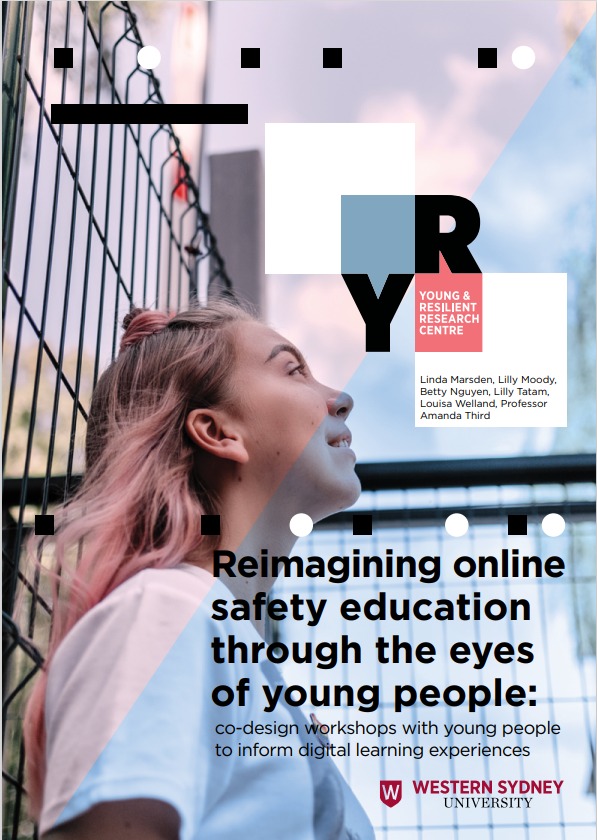New report re-imagines young people’s online safety education
A new Young & Resilient report finds current online safety education does not adequately reflect the experiences and concerns of young people in online spaces. Published on international Safer Internet Day, the report highlights the perspective of young people who have been largely absent in conversations about what and how to educate young people about online safety.
The report was delivered in partnership between Young and Resilient Research Centre and PROJECT ROCKIT, a youth-driven organisation that delivers school-based educational workshops that address bullying, hate and prejudice across Australia. 
Young people want to learn how to engage with online communities in safely, however they reported a gap between online safety education and the reality of young people’s interactions online. Concerns include how to recognise risks and fake accounts, how to maintain agency over private information, and how to respond when they experience or observe any issues online.
The report's findings draw from workshops with 104 young people aged 13-17 from all Australian states and territories. The report was co-designed with young people, emphasising need for youth perspective in future conversations regarding online safety advice and education.
Professor Amanda Third, lead researcher and Co-director of the Young and Resilient Research Centre, said the report lays out an innovative framework of online safety education designed by and for young people.
“Young people are rarely consulted in the development of programs or initiatives that aim to keep them safe online, and so our aim in conducting this study was to co-design a youth-centred model that centres young people’s key concerns, and speaks to their needs and preferences,” said Professor Third.
This study offers a new approach to understanding online safety, which has traditionally focused on extreme risks, such as cyberbullying and online grooming.
“The findings of the report emphasise that there is a need to shift away from dominant risk-based narratives about online safety, and embed a greater focus on social and emotional capabilities that are relevant across both online and offline settings into online safety education.”
Co-author Linda Marsden, PhD candidate and Research Officer at the Young and Resilient Research Centre, said the report advocates for the involvement of young people in the development of online safety educational resources designed for them.
“Importantly, this framework is a starting point and calls for more work to be done to bring together young people, adults and experts to design online safety education. It also calls for a shift away from dominant risk and fear-based narratives about online safety, and highlights a need to embed socioemotional intelligences and integrated online/offline approaches into online safety education,” said Linda.
This forms part of the Real Life project which moves beyond the “how” of online safety, and into the “why” of digital ethics to help young people develop the skills and knowledge to contribute to a more respectful, safe and inclusive online community.
